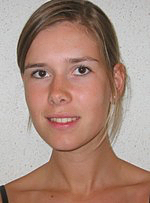Study Finds Gene Therapy Promising Candidate For Cystic Fibrosis Treatment
Written by |

Encouraging results of a study presented by the Katholieke Universiteit (KU) Leuven Laboratory for Molecular Virology and Gene Therapy at Leuven, Belgium indicate that improved gene therapy treatment can cure mice with cystic fibrosis (CF). The researchers note that cell cultures from CF patients also respond well to the treatment.
Cystic fibrosis, also known as mucoviscidosis, is a disorder caused by mutations in the CFTR gene that make mucus in the body thick and sticky, in turn causing clogging of the airways and the gastrointestinal tract in particular. CF symptoms can be treated, but there is no known cure for the disorder.
The CFTR gene contains the production code for a protein that functions as a channel through which chloride ions and water flow out of cells. In the cells of CF patients, these chloride channels are dysfunctional or even absent, so that thick mucus starts building up.
A paper on the research was published last month in the American Journal of Respiratory and Critical Care Medicine, entitled “rAAV-CFTRR Rescues the Cystic Fibrosis Phenotype in Human Intestinal Organoids and CF Mice” (Am J Respir Crit Care Med. First published online 28 Oct 2015 as DOI: 10.1164/rccm.201505-0914OC), coauthored by Dragana Vidovi, Marianne S Carlon, Mlanie F. da Cunha, Johanna F Dekkers, Monika I Hollenhorst, Marcel J C Bijvelds, Anabela S Ramalho, Chris Van den Haute, Marc Ferrante, Veerle Baekelandt, Hettie M Janssens, Kris De Boeck, Isabelle Sermet-Gaudelus, Hugo R. de Jonge, Rik Gijsbers, Jeffrey M Beekman, Aleksander Edelman, and Zeger Debyser, representing several departments at KU Leuven as well as INSERM, in Paris, France, the ErasmusMC/Sophia Children’s hospital, Pediatric Respiratory Medicine in Rotterdam, Netherlands, the University Medical Center, Utrecht at Utrecht, Netherlands, the Hugo R. de Jonge Erasmus University Medical Center, Department of Biochemistry, Rotterdam, Netherlands, and the Jeffrey M. Beekman University Medical Center at Utrecht
The coauthors note that while gene therapy holds promise for a curative mutation-independent treatment applicable to all cystic fibrosis (CF) patients, and various viral vector-based clinical trials conducted in the past have demonstrated safety and tolerance of different vectors, none had led to a clear and persistent clinical benefit.
However, the investigational team explains that recent clinical breakthroughs in adeno-associated virus-(rAAV) based gene therapy encouraged them to re-explore a rAAV approach for CF. Their objectives were to evaluate preclinical potential of rAAV gene therapy for CF to restore chloride and fluid secretion in two complementary models: intestinal organoids derived from CF subjects and a CF mouse model — an important milestone towards the development of a clinical rAAV candidate for CF gene therapy.
The research team engineered a rAAV vector containing a truncated CFTR (CFTRR) combined with a short promoter (CMV173) to ensure optimal gene expression. A rescue in chloride and fluid secretion after rAAV-CFTRR treatment was assessed by forskolin-induced swelling in CFTR-deficient organoids and by nasal potential differences in F508 mice. The scientists found that rAAV-CFTRR transduction of human CFTR-deficient organoids resulted in forskolin-induced swelling indicating a restoration of CFTR function. Nasal potential differences demonstrated a clear response to low chloride and forskolin perfusion in the majority of rAAV-CFTRR treated CF mice.
The team concludes that their study provides robust evidence that rAAV-mediated gene transfer of a truncated CFTR functionally rescues the CF phenotype across the nasal mucosa of CF mice and in patient-derived organoids, with the results underscoring the clinical potential of rAAV-CFTRR in offering a cure for all CF patients in the future.
 “A few years ago, a new drug was launched that can repair dysfunctional chloride channels,” Professor Zeger Debyser explains. “Unfortunately, this medicine only works in a minority of CF patients. As for the impact of gene therapy, previous studies suggested that the treatment is safe, but largely ineffective for cystic fibrosis patients. However, as gene therapy has recently proven successful for disorders such as haemophilia and congenital blindness, we wanted to re-examine its potential for cystic fibrosis.”
“A few years ago, a new drug was launched that can repair dysfunctional chloride channels,” Professor Zeger Debyser explains. “Unfortunately, this medicine only works in a minority of CF patients. As for the impact of gene therapy, previous studies suggested that the treatment is safe, but largely ineffective for cystic fibrosis patients. However, as gene therapy has recently proven successful for disorders such as haemophilia and congenital blindness, we wanted to re-examine its potential for cystic fibrosis.”
 Accordingly, paper lead authors Dragana Vidovi and Marianne Carlon examined an improved gene therapy treatment based on inserting the genetic material for chloride channels coded by the CFTR gene into the genome of a recombinant AAV viral vector, which is derived from the relatively innocent AAV virus. The researchers then used this vector to ‘smuggle’ a healthy copy of the CFTR gene into the affected cells.
Accordingly, paper lead authors Dragana Vidovi and Marianne Carlon examined an improved gene therapy treatment based on inserting the genetic material for chloride channels coded by the CFTR gene into the genome of a recombinant AAV viral vector, which is derived from the relatively innocent AAV virus. The researchers then used this vector to ‘smuggle’ a healthy copy of the CFTR gene into the affected cells.
They found that both in mice with cystic fibrosis and in gut cell cultures from CF patients, this approach yielded positive results. “We administered the rAAV to the mice via their airways. Most of the CF mice recovered. In the patient-derived cell cultures, chloride and fluid transport were restored,” Vidovi and Carlon note.
However, the investigators caution that there is still a long way to go before gene therapy can be used to treat cystic fibrosis patients, “We must not give CF patients false hope,” says Prof. Debyser: “Developing a treatment based on gene therapy will take years of work. For one thing, our study did not involve actual human beings, only mice and patient-derived cell cultures. Furthermore, we still have to examine how long the therapy works. Repeated doses might be necessary. But gene therapy clearly is a promising candidate for further research towards a cure for cystic fibrosis.”
Situated in Belgium, in the heart of Western Europe, KU Leuven, founded in 1425, has been a center of learning for nearly six centuries, and today is Belgium’s largest university and one of the oldest and most renowned universities in Europe, fulfilling its mission by providing high-quality interdisciplinary research and education with a Catholic signature.
KU Leuven, where centuries-rich history meets cutting-edge science, is located in Flanders, the Dutch-speaking northern part of Belgium. With the Dutch language’s steady rise to renewed prominence, 1968 saw the university split into two new universities. The French-speaking Université Catholique de Louvain moved to the newly built campus in Louvain-la-Neuve. The Dutch-speaking Katholieke Universiteit Leuven remained in its namesake historic town of Leuven. The university also offers degree programs at campuses in 11 Belgian cities, including Brussels, Ghent and Antwerp.
Above Image caption: The research team used viral vectors to ‘smuggle’ therapeutic genes into cells
Image courtesy KU Leuven Lab. for Molecular Virology and Gene Therapy
Sources:
Katholieke Universiteit Leuven (KU Leuven)
American Journal of Respiratory and Critical Care Medicine






